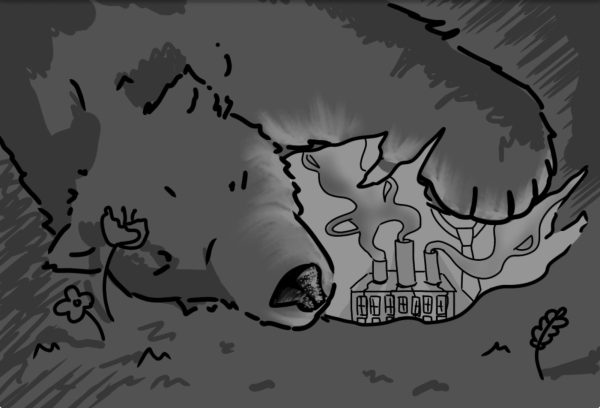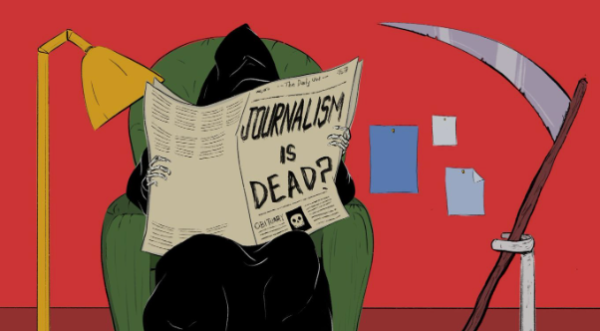“Impractical” Major Decisions Can Reap More Benefits in Life
February 28, 2014
College in and of itself is a practical thing, but what one studies should not be influenced by this. Students are encouraged to start choosing a career path at an early age. This usually means earning a specific college degree that will directly translate to a job. Tuition fees are more expensive than ever, and students are often concerned that their college education will only be worth the expense if they study a subject with a clear link to a job. Along with that mind-set often comes the assumption that pursuing an obscure degree such as poetry or anthropology will ultimately be a waste of time and money because there is no clear career path to proceed to. Students should feel free to pursue their most passionate interests in college without the pressure of translating said interests into a career.
The idea that obscure majors do not lead to a direct career makes several false assumptions. The world is entering a period in which innovative ways of thinking are more important than ever. Prospective employers see the value in alternate perspectives. That poetry degree could be useful in an advertising firm because of the understanding of language that comes with it. Lawyers with an undergraduate degree in psychology would have an advantage because of their ability to understand human motives and persuade a jury. A politician who studied feminism and women’s studies in college would have a more accurate sense of how to represent a population fairly. According to the New York Times, employers have responded in survey after survey saying that employees who are able to come up with creative solutions and critically sift through information are the most valuable and sought after. As a population, society craves a rich and diverse way of thinking about world issues, and if individuals continue to see career paths in isolation and not acknowledge their connection to their passions, this will be much harder to achieve.
In addition, the fact that individuals who have obscure college degrees are rare only guarantees a job market for them. The world is vast and people who are able to think about and apply these thoughts to a never ending amount of tasks and professions are needed. Someone’s shot at gaining a fulfilling job is much higher if one pursues a specialized obscure passionate interest, rather than a degree that everyone knows has a specific career at the end of it. The competition will be much greater if an individual simply gets a degree in a generic job applicable degree which they have a mild interest in. Trends in the business market will never be one hundred percent predictable, and trying to guess what type of education will guarantee a spot in the job market can often result in a waste of time and a job one finds boring and unfulfilling.
On an individual level, pursuing a degree in something one is deeply passionate and interested in has several invaluable benefits. On a purely practical level, the subjects most students are interested in are the ones they retain the best. According to The National Academy of Science and Engineering, business and engineering majors have the highest dropout rate as some people only take these classes because they believe they will lead to a good financial career. If one studies a field they find exciting, a lens is gained through which to perceive the rest of the world. Even the mundane grind of adult life can become fascinating.
Students should not feel pressured to pursue a field of study they do not love, and others should not look down upon this pursuit or assume it is a waste of time and money. It is the best way to gain an individual appreciation and curiosity about the world as a whole as well as giving one a specific and interesting perspective to evaluate the world through. It will also help diversify the world and allow for more innovations and prohibit seeing issues and careers in pure isolation. In order to get closer to the ideal society, people need to enjoy the life they are living, an idea that begins in college.





















